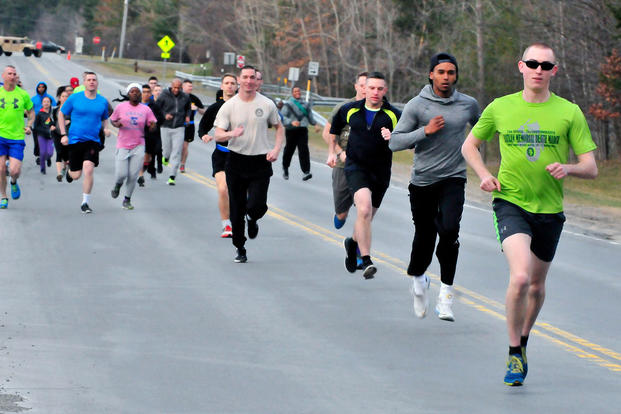Have you ever started a workout program and were stunned that, after a month, you did not lose weight? You actually gained weight. Don't worry; there is an explanation for it.
Here is an email from a military spouse with a similar experience during the beginning of her fitness program:
"Stew -- I just started to work out again -- other than walking a few days a week. It has been a month of consistent lifting, stretching, calisthenics and cardio workouts. Sometimes even twice in one day! What gives? I have gained five pounds. I do not have that much to lose -- maybe 10 pounds (now 15!!). What can I do? Signed -- Getting Discouraged."
I understand. This happens, so do not feel bad; you are not wasting your time. There are many reasons why your new fitness plan may be producing different results at first.
Body Changes
If you are adding a resistance program (calisthenics, weighted exercise), there will be tearing down and building up of muscle. At first, this micro-tearing of the muscle fiber causes water retention during the healing process, which can result in some weight gain.
Gaining Muscle
You could be experiencing muscle growth, which, in turn, will help you be stronger, increase bone density and soon help you burn more fat, even at rest.
As you begin your new fitness program, your muscles start to grow, especially if you are starting at the beginner level with little to no muscle in your arms, legs, butt and core. You also may feel an increase in muscle firmness during the process.
Muscle takes up less space than fat, so you may see an increase in weight but a decrease in inches elsewhere through the body (waist, hips, upper arms and other places where fat is stored). Adding muscle typically takes 1-2 months.
Retaining Water and Glycogen
Your muscles (and liver) will start to store more glycogen (fuel) and water during the transition from no activity to an active lifestyle at first. As you get into better condition, your muscles will not need the same level of fuel for the same level of workout. Once this occurs -- it could take 4-6 weeks -- your water retention will decrease, and your weight will decrease as well.
Unchanged Eating Habits
Many people start an exercise program, but do not change their diet at the same time. I have recommended that people build the habit of fitness first; the body's natural desire for healthier foods will follow. It may be time to consider adding a food plan to help you eat leaner and more healthier foods. I recommend that people make a food diary. Write everything down that you eat and drink. Be sure to note sugar calories, other carbohydrates, protein and fat sources as well.
Stress
Working out is a great stress reliever. However, it could be adding more physical stress to your emotional stress and not properly helping you battle it. De-stress by taking a walk and focusing on deep breathing. Try box breathing: four seconds inhale, four seconds hold, four seconds exhale, four seconds hold. Repeat four times during your walk or as a cooldown exercise after your walk.
You also can try stretching at the end of the day or eating a good meal with lean protein, antioxidants (fruits, vegetables) and omega-3 fats (olives, almonds) to help with the effects of stress. Then get a good night's sleep. Sleep is our number one recovery tool. Use it.
Finally, be patient. You did not get out of shape and overweight overnight, and you will not get in shape and reach your weight-loss goals overnight, either. Getting in better shape is a journey; be ready to be in it for the long haul. You can do it.
Stew Smith is a former Navy SEAL and fitness author certified as a Strength and Conditioning Specialist (CSCS) with the National Strength and Conditioning Association. Visit his Fitness eBook store if you're looking to start a workout program to create a healthy lifestyle. Send your fitness questions to stew@stewsmith.com.
Want to Learn More About Military Life?
Whether you're thinking of joining the military, looking for fitness and basic training tips, or keeping up with military life and benefits, Military.com has you covered. Subscribe to Military.com to have military news, updates and resources delivered directly to your inbox.


















